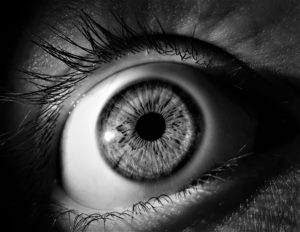Eye Health UK has warned that missed sight tests and low public awareness of the symptoms of eye disease, risks leading to a surge in avoidable sight loss as well as increases in mental health issues and falls.
 To mark National Eye Health Week, which this year runs from 21-27 September, figures from private eye examination data and GOS statistics have revealed that five million routine eye tests were missed during lockdown. To compound the issue, opticians are still operating a reduced capacity of sight tests, due to coronavirus social distancing measures, leading to further delays in diagnosing and treating sight-threatening eye conditions such as glaucoma and macular degeneration.
To mark National Eye Health Week, which this year runs from 21-27 September, figures from private eye examination data and GOS statistics have revealed that five million routine eye tests were missed during lockdown. To compound the issue, opticians are still operating a reduced capacity of sight tests, due to coronavirus social distancing measures, leading to further delays in diagnosing and treating sight-threatening eye conditions such as glaucoma and macular degeneration.
Royal National Institute of Blind People suggests that speedy diagnosis and treatment is the best defence in controlling eye disease and preventing avoidable sight loss.
Minister for Prevention, Public Health and Primary Care, Jo Churchill said: “Protecting the health of our eyes is incredibly important – but it’s something that too often gets overlooked. That’s why I’m delighted that Eye Health UK has dedicated a week to raising awareness of the issues around eye health and how people can look after their vision.
“Eye care services are open and practising safely across the country to provide advice and support in COVID-secure environments. I would urge everyone to take care of their sight and have it tested regularly.”
Poor eye health can have a significant effect on quality of life. David Cartwright, Chairman of the charity Eye Health UK said: “Even slightly reduced vision can have an impact on your mental health – increasing the risk of depression three-fold. It can also affect your physical well-being – more than doubling the risk of falls, for example, as well as taking a toll on educational performance and social activities.”
Worryingly, research shows that many of us are unaware of the symptoms of sight-threatening conditions. A recent University of London study into age-related macular degeneration (AMD) – the UK’s leading cause of sight loss – found the most common patient-related factor for delays in treating the condition was people not attributing their symptoms to the condition – as they either lacked knowledge about AMD symptoms or attributed their symptoms to another eye problem e.g.: needing stronger spectacles.
Study participants also didn’t perceive their symptoms as urgent or important and so delayed contacting their optician.
Yet, half of all sight loss is avoidable. In order to ensure prompt diagnosis and treatment people are advised to contact their optician immediately if:
 Your vision has suddenly changed or become blurry;
Your vision has suddenly changed or become blurry;- You have a painful or red eye;
- You have been referred by NHS 111, your GP practice or other healthcare professional;
- You have broken or lost your glasses and can’t function properly without them;
- You have a problem with your contact lenses;
- You have a foreign body in your eye;
- You are worried about your vision or eye health.
If you are not registered with an optical practice, you can find details of local opticians on the NHS website.
It’s recommended everyone has an eye test every two years unless advised otherwise by their optometrist.
What makes us susceptible to burnout?
In this episode of the Safety & Health Podcast, ‘Burnout, stress and being human’, Heather Beach is joined by Stacy Thomson to discuss burnout, perfectionism and how to deal with burnout as an individual, as management and as an organisation.
We provide an insight on how to tackle burnout and why mental health is such a taboo subject, particularly in the workplace.

 To mark National Eye Health Week, which this year runs from 21-27 September, figures from private eye examination data and GOS statistics have revealed that five million routine eye tests were missed during lockdown. To compound the issue, opticians are still operating a reduced capacity of sight tests, due to
To mark National Eye Health Week, which this year runs from 21-27 September, figures from private eye examination data and GOS statistics have revealed that five million routine eye tests were missed during lockdown. To compound the issue, opticians are still operating a reduced capacity of sight tests, due to  Your vision has suddenly changed or become blurry;
Your vision has suddenly changed or become blurry;
Having expediently ignored eye-strain, CVS or Screen Fatigue pre-COVID-19 we are all now dependent on the 2019 ISO 30071.1 being adopted including “DSE Interface Colour Contrast Validation” in order to mitigate over-exposure to the standard, out of the box, inaccessible back-lit white background contrast to text causing the visual repetitive stress injuries and/or monocular 2D adaptations in 58% of operators, asthenopic & myopic disease scaled by the WHO in their earlier ICD-10 Visual Disruptions & Blindness.